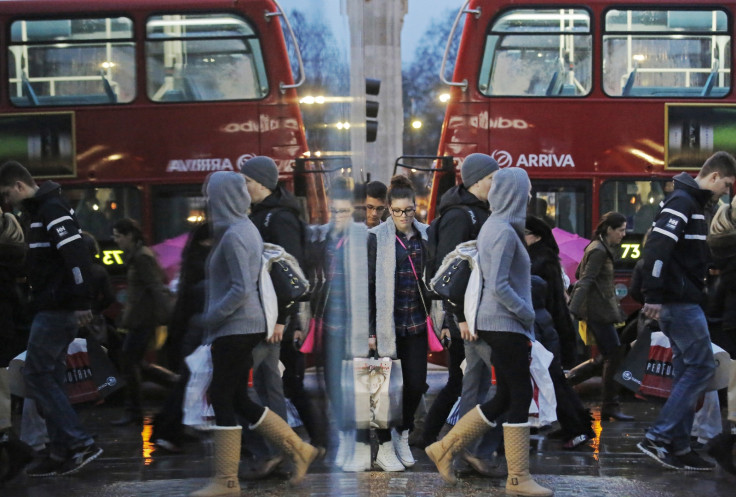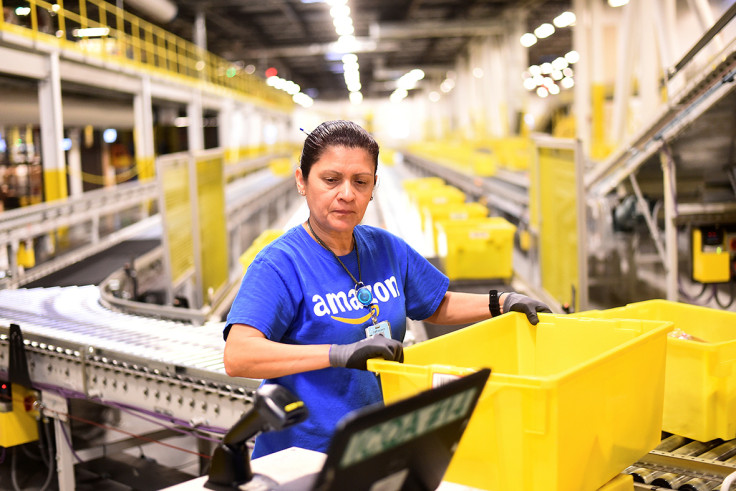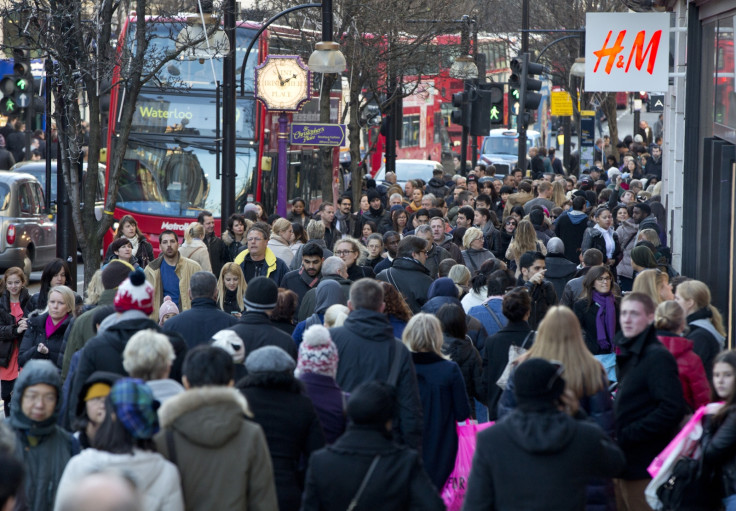Why are changes to Britain's business rates upsetting everyone?
Changes to UK business taxes are angering small retailers, larger retailers, those in the South and MPs.

The government will change the way Britain's business rates are calculated in April, and few are happy about it. Big chains, such as Sainsbury's, say they will pay more than international online giants, such as Amazon. Shops in the South say their rates could almost double, while retailers in large parts of the North will see their rates cut.
This has led Conservative MPs in the South to urge the government to think again about the plans, even at the eleventh hour.
Communities and local government secretary, Sajid Javid, and the Treasury chief secretary, David Gauke, hit back saying there had been a "relentless campaign of distortions and half-truths" about the move earlier this week.
So just what is happening with business rates?
What are business rates?
Business rates are taxes paid on non-residential properties, such as shops, offices, factories, and pubs. Around 1.8m commercial properties in England and Wales are liable.
Councils send out business rates bills each year, in February or March. The amount owed will depend on the "rateable value" of the property.
This is based on the annual market rent value, determined by the Valuation Office Agency, using other rents in the local area to work out an average.
There are some key exemptions. No tax is paid on farm land or agricultural buildings, or places of religious worship, and properties used for the training or welfare of disabled people are also exempt.
What is the money used for?
Income from business rates helps fund services provided by local councils including roadworks, street cleaning, housing, social care and the economic development of the area.
How much is raised?
Business rates are forecast to raise £29bn in the coming tax year, around 4.5% of the entire UK tax revenue.
But the government adds that despite the many changes to the system, the fiscal effect will be neutral. No extra cash will be raised from business from this levy.
The independent Office for Budget Responsibility estimates that business rates will raise 1.5% of GDP in 2016-17, precisely the same proportion of national income in 2017-18.
Will rates be higher in the South than the North?
In general, yes. This is because property prices are higher in the South.
But the differences can be stark. While some shops in central London may see their business rates jump by as much as 87%, the government says average business rates in Hull will fall by 13%, while in Leeds and Newcastle they will be cut by 11%.

Business rates are usually changed every five years, but this review has come after seven years. This is partly because the Coalition government wanted to put off the headache of revaluation, and partly because businesses at the time argued for extra breathing space as they recovered from the financial crisis.
However, long delays between property-based reviews exacerbate relative differences between regions.
Will supermarkets pay more than international online giants?
Yes. But this should not be surprising considering grocery chains have more outlets. Sainsbury's runs more than 1,200 supermarkets and convenience stores, as well as a network of warehouses. By contrast, Amazon operates a smaller number of UK warehouses, a London head office, and no shops.
However, Sainsbury's chief executive Mike Coupe called the business rates system, "archaic" at the weekend saying it ignored the rise of online shops based in out-of-town warehouses.
Coupe said: "The way it currently stands, there is an advantage for those without bricks and mortar operations, so there's a strong case for a level playing field in business rates and taxation more generally.
He added: "As it stands, we could see high streets face serious challenges and ultimately more closures."
According to retail analysts, Sainsbury's will see its annual rates rise to £500m, up from £483m, while internet giant Amazon will see its bill cut, because many of its warehouses are in the Midlands and the North.

However, the main reason Amazon is being pulled into this debate is because of the outrage the firm prompted in 2015, when it was revealed it paid £11.9m in tax while its Luxembourg unit took £5.3bn of sales from British internet shoppers without being subject to UK levies.
Firms such as Amazon, Starbucks and Google are among a number international firms exploiting entirely legal international tax loopholes to pay less tax on their European operations.
Meanwhile, last week the Association for Licensed Multiple Retailers wrote to Chancellor Philip Hammond asking for more transitional relief for the sector, which includes pubs and leading restaurants such as Pizza Express, Wagamama and Yo Sushi.
The extra rates bill for the 43,231 pubs in England and Wales is set to jump by £421m over the next five years, according to rates and rents specialist CVS.
Why is the government on the back foot over the changes?
A number of Conservative MPs in the South want greater relief for businesses in their areas that will face significant rate rises.
Senior Tory MP Mark Field, who represents the Cities of London and Westminster seat, told BBC Radio 4's Westminster Hour that he believed the Treasury's Hammond would "tweak" the planned revaluation.
Field, the vice-chairman of the Conservative party, said: "I'm very confident that he is in listening mode and 'tweak' is the right word. I think my own central London constituency probably is, in fairness, one of the minority of areas that lose out."
But earlier this week the Government's Javid and Gauke wrote a joint letter to MPs in a bid to stave off a rebellion.

They wrote: "This year's revaluation has been preceded by a series of reports claiming that rates are going to soar, that appeals are being banned and that hundreds of thousands of businesses will be forced to close. Such claims are simply untrue."
The ministers point out that 600,000 firms will not pay the tax at all. No business with a rateable value of less than £12,000 will be liable.
They added that a transitional relief fund is set at £3.6bn, which will cap rises and phase in increases over five years.
Yet large numbers of high-street businesses say they face going to the wall ahead of the spring changes. Many of these business are small firms, the spark plug in the UK's powerhouse service sector, which accounts for three-quarters of the economy.
The changes also come as Brexit negotiations are about to start with the European Union, which makes the government particularly sensitive to charges that it is lobbing spanners in the works of UK plc.
© Copyright IBTimes 2025. All rights reserved.






















